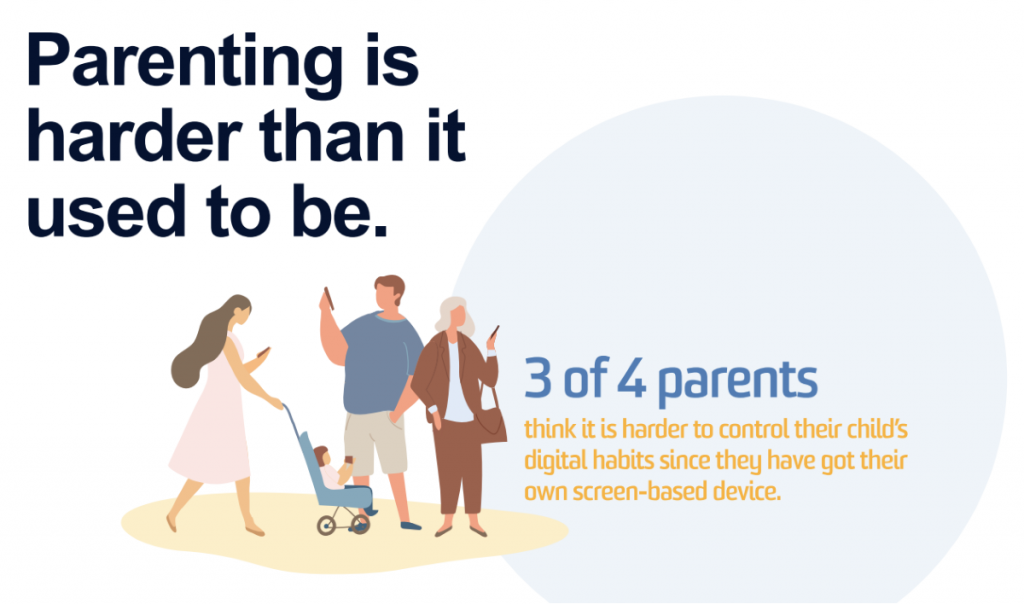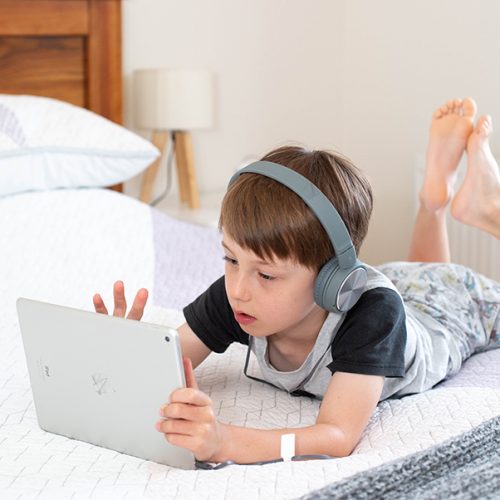Ian Shaw, Principal
A recent study by the UNSW Gonski Institute for Education produced a summary report on technology and families. The data represented more than 5000 children and 2450 Australian parents and grandparents, between the ages of 25 & 65 years old. Here is a snapshot of what we learn about ourselves if the survey is representative of our lives. I have a sneaking suspicion that it is fairly accurate, even for Kuyper families.
- More than 4 in 5 children own at least one screen-based device. The average is 3 devices per child.
- Personal ownership of devices starts as young as 4 years old.
- Parents are most worried about the negative impact of screen use on their child’s physical activity levels, attention span and time to play.
- 3 of 4 parents think it is harder to control their child’s digital habits since they have got their own screen-based device.
- 83% of parents felt their child was negatively distracted by digital technologies.
- 65% of families agreed that negotiating digital technology use causes conflict in the home.
- 72% of parents recognise that their own digital media and technology habits influence those of their children.
- Over 90% of parents felt that they themselves were distracted, at least to some extent, by digital technologies.
- More than half of parents primarily allow their children to use digital media and technology for entertainment. Comparatively, only 1 in 5 predominantly use it for learning purposes.
- 65% of parents felt that when their child is bored, using digital devices to distract them is their first choice.
- 37% of children and young people have been anxious or depressed because of their time online or because they were not allowed to use their device.
- 90% of parents felt that digital technologies make is easier to stay in touch with family and friends.
- 3 in 5 children who are struggling at school go to bed with their devices.
- 30% of families allow their children to use their devices in their bedroom after bedtime every single day.
- Nearly half of Australian parents (47%) suggest that screen time has a negative impact on emotional health.

What can we learn from this? We would do well to heed the warning signs listed above and seek to guide our children with wisdom in this domain. By way of doing this, I would like to commend Mrs Stewart, one of our parents, who recently gave a presentation at the Kuyper Association Annual General Meeting. She discussed how she and her husband manage the screens in their home with 4 teenagers. The Stewarts use a program called Google Family Link which gives control to parents and helps them teach appropriate device use for their children at home. I have asked Mrs Stewart to repeat her presentation at the Not Even Once (Changing the Narrative) drug and alcohol workshop for parents on 9 June at 7 pm. I strongly encourage you to be present for both sessions. What these presenters have to say will be gold for families struggling with technology and other teenager issues.
So, are our smartphones hostile territory? Is it a cultural trinket or a legitimate tool? Just like belly buttons, we all have them, but we want students to understand that technology can be friend or foe. It is a gift from God, and like many other things, can be used for good or evil. As recorded in Genesis, Adam and Eve made the tragic mistake of ignoring God’s only request and we all live with the results of the breakdown of our relationship with God, and everyone, and everything.
With this history, let us seek to honour God with our technology. This starts with being conscious of our example and how technology is affecting us and our families. Let us seek to transform technology use in ways that foster goodness and community building.

